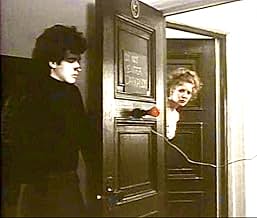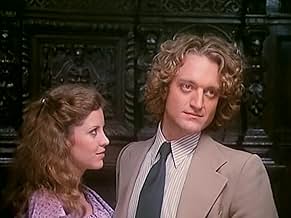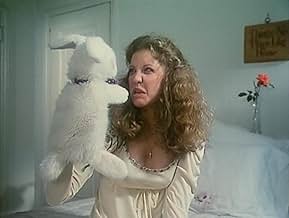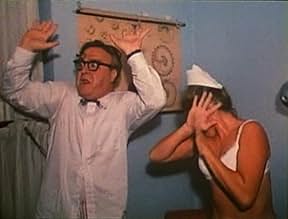The bulk of the crew on Brian De Palma's Home Movies were his college students, but if you asked me where it looks it the most it's hard to say. De Palma decided to make it a challenge in as much that he thrusted these kids (one of whom Mark Romanek) into their first real foray into film-making, but he also lessened some of the possible stress on the situation in two ways: he took some of the same freewheeling, seemingly improvisational approach that he took with his early satires (the great Hi, Mom and the decent Greetings), and he also made it a silly comedy based around his obsessions and personal history. It's a send-up of self-made stardom, adultery, male dominant control, and the craftiness in the craft of film-making, and it's very funny.
But to say how funny it is or why would have to reveal too much of the plot, which I'd rather leave open ended for those who might find this in their local video store's obscure picks. All I'll say is that Kirk Douglas plays the Maestro (introduced by a hilarious lot of egotistical opening titles), teaching a class about how he faltered in getting a young man, Dennis Bird (Keith Gordon) to move on from being just an "extra" in his life to being the star of his own making. Gordon's Dennis is the youngest in the Bird family, which includes an adulterous doctor father, a weepy and half-crazy (and half all-for-attention) mother, and a brother, James (the scene stealing meat-head played by Gerrit Graham with the same tenacity as in Phantom of Paradise), who teaches a summer class on Spartanism to a bunch of impressionable youths. He's also getting engaged to Kristina (always gorgeous Nancy Allen), but there's some trouble and friction in their possible "socio-economic contract".
Meanwhile, Dennis meets the Maestro while acting as a Peeping Tom up in a tree, and becomes an amateur filmmaker. Now, as this all sounds, it's a little stuck together in cheap style and rough edges, which adds to its charm. It's made almost as if De Palma knows it's something of a fluke, and just wants to get his students as enthusiastic as possible about the process; it wouldn't be as much fun having them on, for example, Casualtues of War. And as one of De Palma's experimental comedies, it provides for the director, through a better than expected script from his pupils, to express some of his nuttiest scenes, including some scenes where Kristina has to unleash the "rabbit", and the running gag with Gordon dressed in black face and an afro sneaking around at night. It's not anywhere near a great comedy, but for what De Palma was after it's a success.
In short, it's a low-key hoot, and De Palma fans looking for some ridiculous and crazy gags and character development won't be disappointed.





























